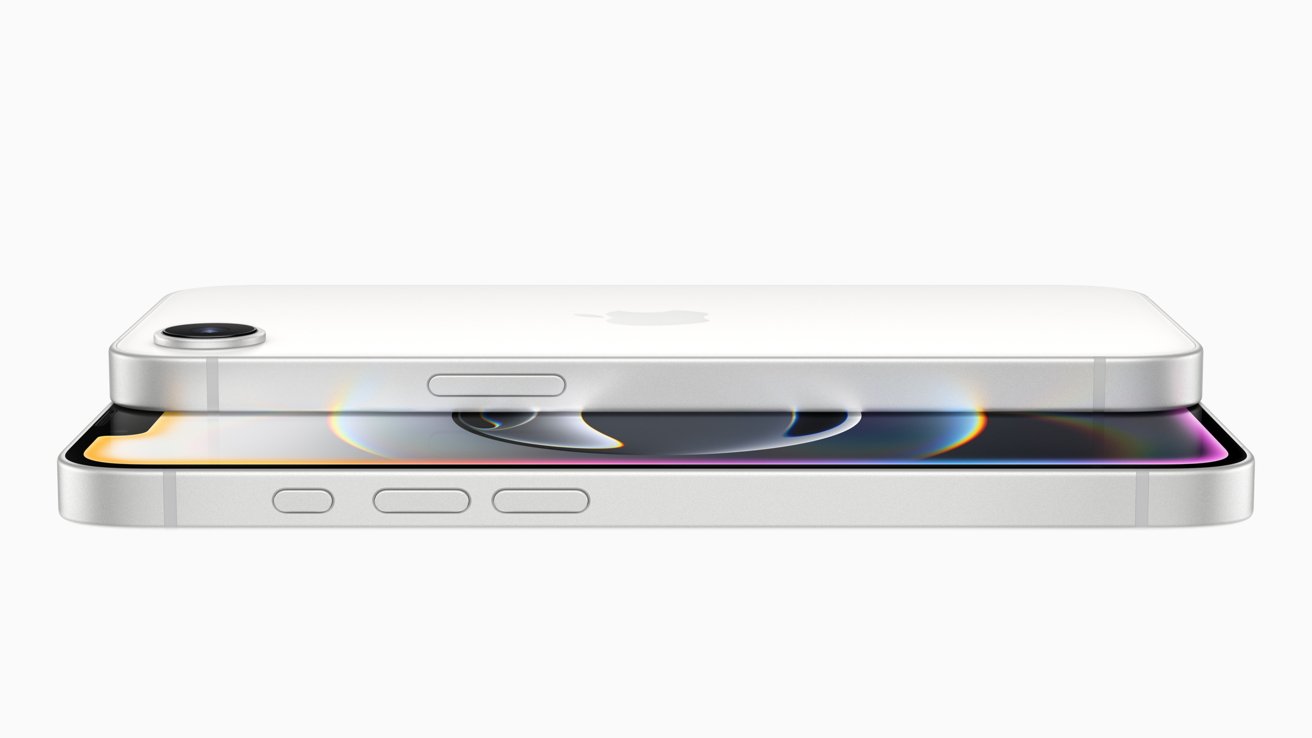Apple's C1 modem signals the end of its Qualcomm dependence
Apple has finally introduced its first in-house modem alongside iPhone 16e, the C1, marking a major shift in its hardware strategy.

iPhone 16e
For years, Apple has relied on Qualcomm for iPhone modems, but that relationship has been winding down. The company took a big step toward independence in 2019 when it acquired Intel's smartphone modem business for $1 billion.
That move set the stage for Apple to develop its own 5G modem, cutting out third-party suppliers and ensuring tighter hardware integration. It makes its debut in the iPhone 16e, but it isn't clear if the in-house modem will be ready for Apple's iPhone 17 lineup in the fall.
The long road to an Apple modem
Apple's modem ambitions have been no secret. The company has invested heavily in research, but reports suggested that development hasn't always gone smoothly.
By 2023, Apple was still finalizing its modem supply chain, with companies like ASE Technology and Amkor Technology competing to handle packaging for its custom chips.
Despite that progress, industry insiders speculated that Apple's modem was running behind schedule. Some reports claimed that Apple's in-house design lagged about three years behind Qualcomm's top offerings, raising concerns about performance.
While the C1 is a major step toward full independence, it still has limitations. The current version doesn't support millimeter wave 5G, a high-speed connectivity standard that Qualcomm modems have offered for years.
Read on AppleInsider

Comments
So I will need to get another covid shot to acquire my 6th Bill Gates' microprocessor.
EDIT: 3GPP is hoping to finalize the 6G standard by the end of 2028 so that a network can be prepared for 2030 deployment. The standards group also recognized a potential "power grab" by newcomer Apple and has taken steps to neutralize it.
https://www.lightreading.com/5g/3gpp-moving-to-prevent-power-grab-by-apple-others
That is on schedule for a 2030 launch but carriers will have to have paid off their 5 and 5.5G investments first.
If they drag their feet on that, 6G could roll out to industrial private networks first (just as with 5G). Apple does not operate in that business.
Worth noting too that (albeit sketchy) rumours are pointing to Huawei launching a 5.5G capable modem next month.
5G band n53 is the GlobalStar sat-comm band. No UWB in the iP16e. Apple's cellular modem has about 8 more 5G bands supported than the iP16P. GPS is single band.
The single most important thing about Apple's C1 modem is power efficiency and performance at low signal levels. Hopefully tests will be done.
Apple is Five-Six years in? It took thirteen years to get rid of Intel with Apple Silicon, is it a Western problem with playing the long game? Seems to be….
Apple wasn't on the cellular/modem map when everything was cooking and, more importantly, it had absolutely no plans to be either. It wasn't in the game (long or short).
That was an Intel role. It was only when Intel failed to deliver and 5G modems were already shipping that Apple had its 'Yikes!' moment and had to publicly kiss and make up with Qualcomm.
By acquiring the Intel division (its only way forward save for sticking with Qualcomm) it multiplied its cellular patent portfolio but is still far behind others.
Every iPhone sold with a 5G modem (no matter who makes it) earns Huawei $2.5 from Apple. Apple also pays Huawei $0.50 for every handset with Wi-Fi 6.
Qualcomm also gets its royalties from Apple but I don't know their pricing structure.